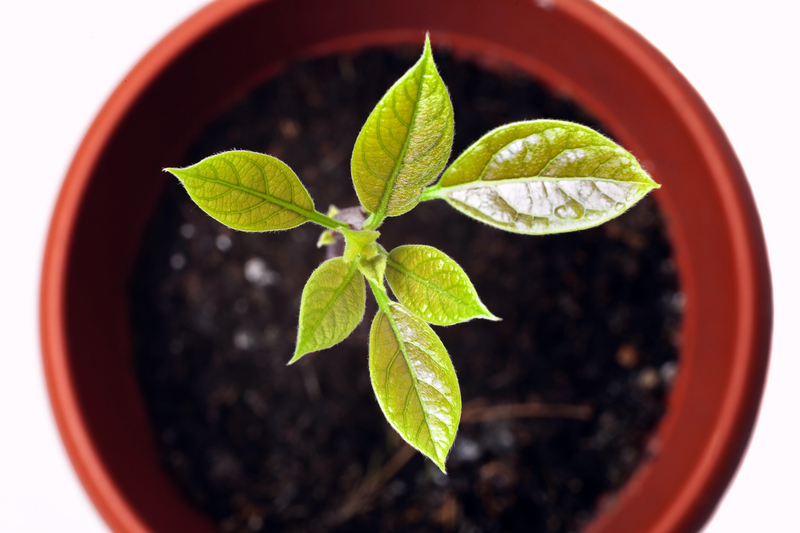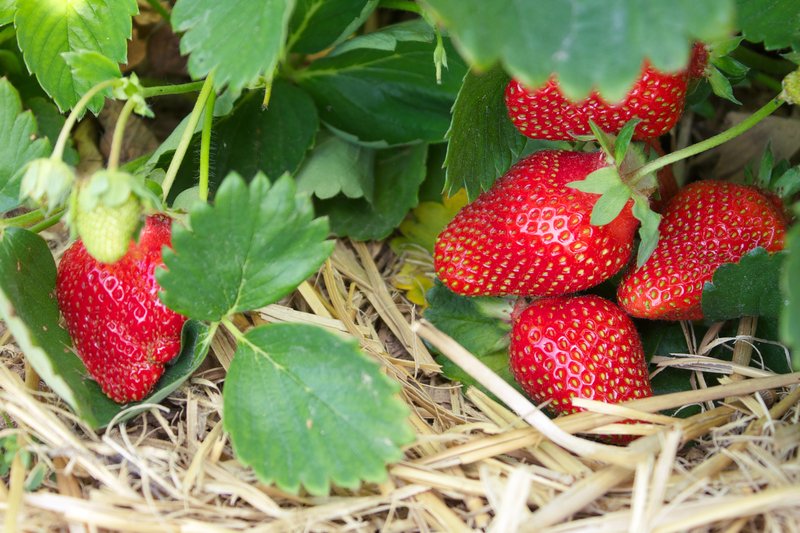9 Must-Know Tips for Beginners Embarking on Gardening
Posted on 14/08/2025
9 Must-Know Tips for Beginners Embarking on Gardening
Starting your gardening journey is an incredibly rewarding experience. Whether you aim to grow a flourishing veggie patch, a vibrant flower garden, or cultivate houseplants, taking those first steps can be overwhelming. That's why, as a beginner gardener, equipping yourself with essential gardening tips can set you on a path to success. Explore these 9 must-know tips for beginners starting gardening and transform your space into a flourishing haven of green.
1. Choose the Right Gardening Location
The foundation of successful gardening is location. Assess your environment before purchasing seeds or plants.
- Identify Sun Exposure: Most vegetables and many flowers thrive in areas that receive at least 6-8 hours of direct sunlight. Observe your yard or balcony throughout the day to spot optimal sunlit areas.
- Consider Accessibility: Pick a spot that's easy to reach with water, tools, and offers a pleasant working environment. If growing in containers, opt for patios, window sills, or balconies with ample light.
- Avoid Trouble Spots: Stay clear of locations beneath overhanging trees or areas with poor drainage.
The right location sets your garden up for healthy, vigorous growth from day one.
2. Understand Your Soil and Improve It
Your soil is the lifeblood of your garden. Different plants have unique soil preferences, and understanding what's underfoot is crucial for beginners embarking on gardening activities.
- Test your soil: Use an inexpensive soil testing kit to determine pH and nutrient levels. Most plants prefer slightly acidic to neutral soil (pH 6.0-7.0).
- Add organic matter: Incorporate compost, aged manure, or leaf mold to improve structure, fertility, and drainage--essential for healthy root growth.
- Avoid compacted soil: Loosen up dense ground with a garden fork or tiller before planting.
Tip: If you're gardening in containers, invest in high-quality potting mix--never use regular garden soil in pots.
3. Select the Best Plants for Beginners
Choosing the right plants is a vital gardening beginner tip. Pick plants suited to your climate, sunlight, and personal preferences--and always start simple.
- Choose easy growers: Leafy greens (lettuce, spinach), radishes, marigolds, sunflowers, and zinnias are forgiving for novices.
- Go native: Native plants and flowers adapt better to local climates and resist pests and diseases with less fuss.
- Buy healthy starts: Purchase vibrant seedlings from reputable nurseries, especially if starting from scratch feels daunting.
If you're feeling adventurous, try starting seeds indoors several weeks before the safe outdoor planting date.
4. Learn Proper Watering Techniques
One common pitfall for new gardeners is over- or under-watering. Plants need consistent, adequate moisture--but not soggy soil.
- Water the root zone: Direct water at the base of plants, not the foliage. This prevents diseases and ensures roots get the hydration needed.
- Timing matters: Water in the early morning so plants absorb moisture before midday heat. Avoid evening watering to reduce fungal risks.
- Check the soil: Insert a finger 2 inches into the soil. Water if it feels dry; wait if it's damp.
Pro tip: Mulching helps retain soil moisture and minimizes evaporation--especially in hot weather.
5. Feed Your Plants Wisely
Much like us, plants benefit from a balanced diet. Nourishing your garden is one of the top gardening tips for beginners who want thriving plants.
- Compost is gold: Topdress your beds with compost every season for a steady supply of nutrients.
- Understand fertilizer basics: Use slow-release organic fertilizers. Read package instructions carefully; more isn't always better.
- Watch for deficiencies: Yellowing leaves or stunted growth may indicate the need for added nutrients.
Building your own compost pile is not only eco-friendly but ensures a free supply of natural plant food.
6. Mulch for Maximum Benefits
Mulching is a must-know gardening technique for beginners. A good layer of mulch offers many benefits:
- Suppresses Weeds: Reduces competition and time spent weeding.
- Conserves Moisture: Slows down evaporation, especially crucial in summer.
- Regulates Soil Temperature: Prevents soil from overheating or freezing quickly.
- Enriches Soil: As organic mulches break down, they add valuable nutrients and improve soil structure.
Use shredded bark, straw, leaves, or grass clippings--just be sure materials are weed-free and untreated by herbicides.
7. Start Small and Scale Up Gradually
It's exciting to imagine a lush, sprawling garden, but for beginners, starting too big can lead to frustration. Focus on a manageable area rather than taking on more than you can handle.
- Experiment with containers: Balcony, patio, and window box gardens are perfect for learning and let you control soil and watering easily.
- Create small raised beds: They're easier to maintain, weed, and water, plus you can customize your soil mix.
- Expand as you go: Add more beds or containers each season as you gain experience and confidence.
Remember, a smaller, well-tended garden is more productive than a large, neglected one.
8. Plan for Pests and Plant Diseases
No matter where you garden, pests and diseases can become an issue. Recognize early signs and respond with safe, sustainable methods.
- Inspect regularly: Look under leaves and along stems for aphids, beetles, or signs of mold and mildew.
- Encourage natural predators: Ladybugs, birds, and frogs help control common pests without chemicals.
- Practice crop rotation: Changing plant families in the same soil each year reduces pest buildup and diseases.
- Use barriers and traps: Row covers, sticky traps, and hand-picking pests are eco-friendly defenses.
Avoid broad-spectrum pesticides whenever possible--they often harm beneficial insects and disrupt your garden's balance.
9. Keep Learning and Stay Patient
Each gardening season is a new opportunity to learn and improve your skills. Plants grow at their own pace, and not every crop will flourish--even with careful attention.
- Read and research: Gardening books, extension service websites, and local workshops are treasure troves of advice.
- Join a gardening community: Whether online forums or local clubs, connecting with other garden enthusiasts provides support, troubleshooting, and inspiration.
- Document your journey: Keep a gardening journal to record planting dates, weather patterns, successes, and lessons for future seasons.
- Embrace mistakes: Every failed seed or wilted flower is a valuable lesson for your gardening future.
Patience and curiosity are your best tools for a rewarding gardening experience.


Bonus Tips for Gardening Success
- Label your plants: Especially as a beginner, it's easy to forget what you planted where. Use garden markers for neat organization.
- Prioritize safety: Use garden gloves and proper posture to protect yourself while digging, pruning, or handling soil.
- Time your plantings: Use a gardening calendar to keep track of sowing, transplanting, and harvest dates for your region.
- Invest in quality tools: Good pruners, trowels, and watering cans make gardening easier and more enjoyable.
Conclusion: Grow with Confidence as a Beginner Gardener
Embarking on your first gardening adventure is both exciting and transformative. By implementing these must-know tips for beginners in gardening, you'll set the foundation for a thriving, beautiful, and sustainable garden--whether that's a single container on a sunny porch or a backyard bursting with blooms and veggies.
Remember, every skilled grower began as a novice. With observation, persistence, and a little dirt under your fingernails, you'll develop gardening skills that last a lifetime. Happy gardening!
Ready to get started? Grab those gloves, pick your favorite seeds, and begin your gardening journey today. For more gardening inspiration and advice, follow trusted gardening websites and join a community of fellow green thumbs. Your perfect garden is just a season away!



